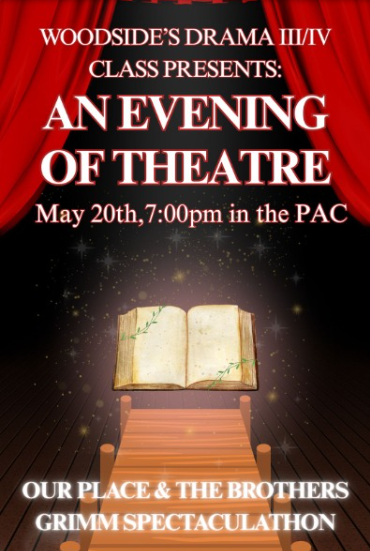Advanced Standing (AS) English 1 was cut for freshmen last year. This was the wrong decision. The SUHSD Board of Trustees should vote to fix this and bring back AS English 1 for future school years this Wednesday, November 15th.
Advanced Standing English 1 was one of two English courses available to freshmen until the 2022-2023 school year, when it was removed. It was more advanced, meaning more rigor, a faster pace, and more learning. The decision to detrack English for freshmen (in other words, remove the option to take AS English 1 or English 1, and instead have one English class), as described by Principal Karen van Putten, was to have “more students…inspired to take AS English 2” and “a common ninth grade English experience,” one which was more diverse.
However, this reasoning is seriously flawed and the decision should be reversed.
In cutting AS English 1, the school has prevented students from taking a more challenging yet more rewarding course, one involving more learning. AS English 1 involved a more rigorous pace (confirmed through class curriculum and teachers) and involved more content and work, such as reading Animal Farm and reading and taking notes on a summer reading packet, This meant not only learning more, but also a more rigorous preparation for harder English classes in the future, like AS English 2, AP English Language, and AP English Literature.
High-achieving freshmen are now consigned to a less rigorous, slower class, despite future English classes maintaining their level of rigor, meaning the jump from English 1 to AS English 2 may very well be harder.
Proponents of AS English 1’s termination argue that differentiation, or teachers tailoring the material to different levels in the classroom, addresses this problem.
“The curriculum is heavily differentiated to provide a level of rigor and challenge appropriate to every student,” Instructional Vice Principal Cara Klackle said.
This would supposedly address the problem of advanced students not receiving the faster, more rigorous learning that would benefit them best. Whether this is true or not in practice can best be determined by asking freshmen about their experience and observing an English 1 class.
Having interviewed a large number of freshmen, I found opinion unanimous among those polled in that zero differentiation occurred and that the class was easy. In other words, none of them saw advanced students receiving extra materials/work when they finished early.
Additionally, as a peer tutor for a freshman English 1 class last year, I spent every day for an entire school year working with freshmen and observing how the curriculum was delivered. I found no differentiation, and only failing students were given extra help to raise their grades. Nothing furthered the learning of advanced students. Struggling students would have best benefited from a separate class, one where they can receive greater attention and a pace/rigor level fit for them.
Furthermore, how reasonable is it to expect an English teacher teaching multiple classes of 25+ students, on top of developing a curriculum, instructing and teaching students, grading assignments, and more, to individually evaluate each and every individual student they have, and then adjust their teaching accordingly?
The truth is that there is very little evidence that this differentiation is both occurring and works better than it would with a two-track system.
The other main reason for terminating AS English 1 and merging it with English 1 was to create a more diverse, “common ninth-grade English experience.” Latino students were much more likely to choose English 1 over AS English 1, in contrast with the white student population, which was more likely to do the opposite. As Klackle put it:
“As a very diverse campus, we believe that students’ experiences and backgrounds are valuable. We want everybody in the same room to be able to share those experiences and to be able to really build that community freshman year.”
Addressing the racial discrepancy in freshman English is an honorable goal. We should work to promote the more advanced class and help those at the bottom to get to the top. However, the school did the opposite. By cutting the advanced course, the school prevented Latino and other students from being able to demonstrate excellence and take more challenging classes.
In addition, Woodside freshmen already share 3 classes together: Biology, World Studies, and PE. Does it really make sense to hurt student’s learning through forcing them in a more remedial class in order to create a 4th class where they build community?
In terms of numbers, proponents of detracking often cite the 114-page report titled “Streamlining Course Offerings and Creating More Diverse Learning Environments to Increase Student Access and Success (DRAFT),” a report which uses just over a year of data in determining trends for English 1 at Woodside. It’s hardly enough to make meaningful conclusions, but the report does anyway. To top that off, the report is corroborated by the same people who instituted the termination of AS English 1 and other advanced classes across the district in the first place (including van Putten), which automatically creates a conflict of interest and bias.
The report does nothing to cover the detrimental effects of advanced students being stuck in a class too easy for them. All it mentions is that “English I-P had similar pass rates to peers in AS English I-P in prior years.” Well, yes. Of course advanced students are going to pass a class that is easier — why would the pass rate go down if the class is less rigorous?
One of the fantastic things about having two separate tracks for English is the ability to choose. Students are able to assess themselves and see whether a greater challenge would benefit them, choosing between AS English 1 and English 1. They had a choice, and now, they have none.
The elimination of a “two-track” English system altogether is ironic, considering Woodside has more than just two tracks. English 1 support classes continue to exist, for students who are seriously struggling and greatly behind in English skill level. Woodside clearly recognizes that multiple classes with different levels of rigor should exist, or else they would have merged these support classes with the normal English. All the less sense it makes to combine English classes.
In summary, the school has tried to increase class diversity, but at the cost of student choice and rigor. Diversity is an admirable goal and one the school should strive to, but not in this way. The Board of Trustees should do the right thing and reverse this misguided decision this Wednesday, November 15th.






















J. Thall • Nov 16, 2023 at 11:32 AM
Extremely well presented and I agree 100%. I hope the school board made the right decision last night, although I fear not.